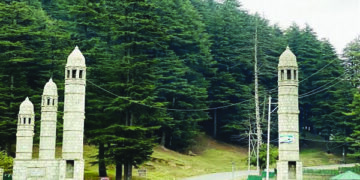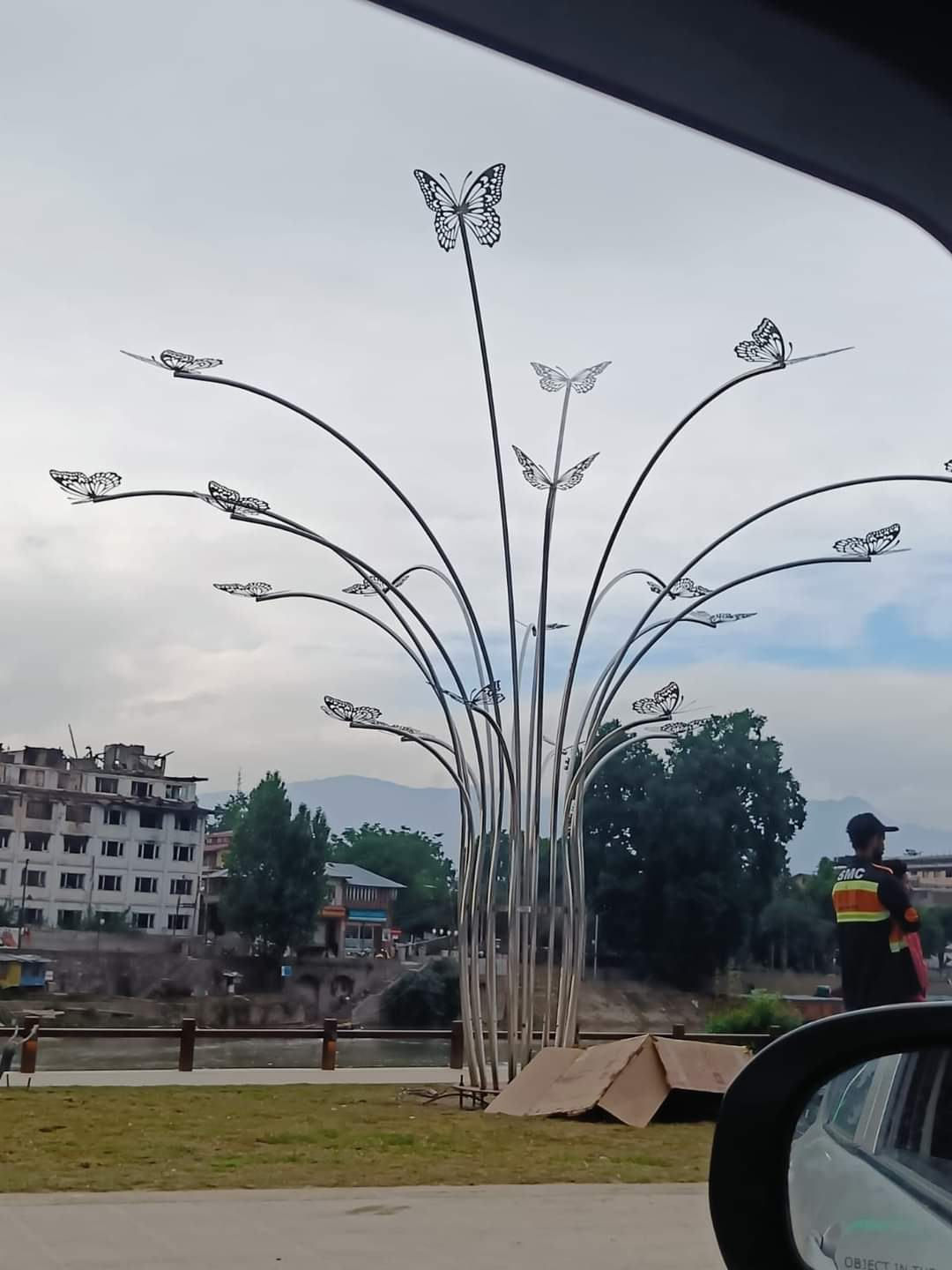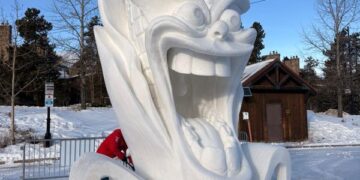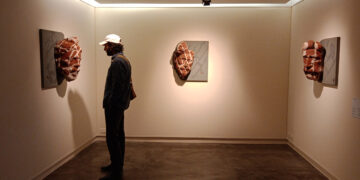By: Mohammad Arfat Wani
Kashmir, known across the world as Paradise on Earth, is celebrated not only for its breathtaking valleys, azure lakes, and snow-clad mountains but also for its profound literary and poetic legacy that has captivated hearts for centuries. This soil, nourished by the blood of martyrs and the fragrance of love, has given birth to poets and writers who illuminated the literary landscape of the subcontinent and beyond. Among such luminaries stand Ghulam Ahmad Mahjoor, who adorned his verses with freedom’s fragrance; Abdul Ahad Azad, who opened the windows of modern thought; Dr. Syed Shabeeb Raza Rizvi, who draped pain in the attire of words; Shuja Sultan, who scattered colors of affection; Rafiq Raaz, who weaved intellectual enchantment; Hamdam Kashmiri, who sang the songs of humanity; and Ashraf Adil, who introduced youth to the freshness of emotions. Rising from this constellation is the resplendent star Parvez Maanous, a poet whose pen breathed new life into Urdu literature with verses, stories, and novels that resonate with the soul.
Parvez Maanous is not among those who treat words as mere tools; for him, words are living beings pulsating with the heartbeat of love, echoing the human soul, and delivering emotions straight into the reader’s heart. His poetry mirrors love, agony, sacrifice, and hope, where every reader finds their own reflection. His verses heal wounds, lend courage to the broken, and cast rays of light upon shattered dreams: “Inhi hawaon se rishte naye banane the, ke sanglaakh chattanon mein gul khilane the, yehi tha shauq ke gaon ki narm mitti mein, surkh gulab mohabbat ke kuch ugane the.”
His literary journey commenced in 1985 with poetry’s fragrance, later extending to the vast realms of fiction. His first collection, Beete Lamho Ki Saugaten (1993), revealed lyrical prowess, followed by Shikare Ki Maut (1995), establishing him as a versatile storyteller. His writings adorned esteemed magazines such as Sirkata Anchal, Mashriqi Anchal, Khatun Mashriq, Gulabi Kiran, Akhbar Naujawan, Jaraim, Sobia, Karwan, Beeswin Sadi, Shama, Kashmir Uzma, Nida-e-Kashmir, Roznama Zamindar, and Tameel Irshad. In 2014, Muthi Bhar Chhaon touched readers’ hearts, followed by Goongee Raat Ka Karb, portraying silent agony. His monumental novels Saare Jahan Ka Dard and Bargashtagi became milestones of Urdu fiction. Over thirty of his books, including five poetry collections, have been published. His recent novel Ishq Jis Ne Bhi Kiya (2024) is hailed as the dawn of a new era in Kashmiri Urdu novels. For these unparalleled contributions, he has received numerous accolades: Best Book Award (2008), Best Translation Award (2012), Best Play Script Awards (2016, 2017), alongside honors from various literary organizations.
The poetry of Parvez Maanous is an ocean of emotions where each wave crashes with meaning. Rarely do poets emerge who, through words, touch hearts and ignite revolutions in thought—he is among such rare souls. His poetry gleams with love’s light, pain’s warmth, sacrifice’s message, and hope’s radiance. His verses on the martyrdom of Imam Hussain (RA) stand as monuments of faith: “Koi kahan thi alamat Hussain se pehle, dikha sake jo shujaat Hussain se pehle, namaz-e-ishq mein sar ko katane wali ye, dikhai kis ne ibadat Hussain se pehle.”
In his verses, life’s bitter realities appear like mirrors reflecting truths one cannot ignore. He weaves threads of pain into words that pierce hearts and linger as haunting melodies: “Sab par hai nazar uski likhta hai kitaabon mein, khamosh sa rehta hai kirdaar mere dil mein, lafzon ko prota hai ik dard ke dhaage mein, Maanous koi to hai fankaar mere dil mein.”
Such lines embody wounds capable of demolishing joy’s castles. Likewise, his verses reveal society’s apathy: “Is shehr-e-namuraad ka haamil kahin kise, hai muntashir har aadmi paagal kahin kise, raste bhi cheekh cheekh ke kehte hain kuch na kuch, sunna ho gar sukoot ka jaahil kahin kise.” He portrays the disintegration of man’s inner self: “Bikhre huye aise hain jazbaat mere dil mein, ik khauf sa rehta hai har raat mere dil mein, uthta hai dhuwaan sa yun har soo hai lahoo behta, is shehr ke jaise hain haalaat mere dil mein.”
The philosophy in his verses awakens readers to hidden truths. He unmasks love’s deceit, hatred’s bitterness, and the significance of practical affection: “Daana kabootron ko dikha kar fareb ka, unko qafas mila hai yahan daar ke ewaz, dushman hua kuch is tarah mausam bahaar ka, aangan mein aag bhar gaya gulzaar ke ewaz.”Maanous’s poetry transcends romance, carrying social consciousness. His lines expose insensitivity: “Kuch log mere zakhm pe hanste hain be sabab, chupte hain mere dil mein yahi khaar kya karoon.” Yet amidst darkness, he scatters light and paints hope: “Paon jakre huye zanjeer ka dukh baant sake, kaun hai jo yahan raahgeer ka dukh baant sake, log tasveer uthate hain chale jaate hain, kaash koi mere Kashmir ka dukh baant sake.”
His art makes readers weep in one breath and breathes hope in the next. He is not only a poet but a healer who applies balm through words, giving broken hearts the strength to live. His essence lies in transforming pain into beauty, darkness into light. His poetry continues to touch hearts, awaken minds, and illuminate souls. Indeed, this is the magic of Parvez Maanous, whose words shine across time like eternal stars: “Mashakkat se hi ooncha is jahaan mein naam hota hai, masaib ka agarche saamna har gaam hota hai, kahan keh paate hain ash’aar hum khud apni marzi se, takhayyul ka hamaare zehan par ilhaam hota hai, mohabbat ka safar jab la-makaan tak sarbasar pahunche, to har awaaz mein aakhir usi ka naam hota hai.”
Through poetry and prose, Maanous proved that literature is not just a craft but a responsibility—to spread love, ignite hope, and connect humanity. His creations echo suppressed voices and unspoken emotions. They hold truths time cannot erase, impacts that light the reader’s soul, and strength that inspires courage. When the history of Kashmiri literature is written, Parvez Maanous’s name will glow as one who transformed pain into poetry, wrapped love into words, and lit hope’s lamps in countless hearts. His words will continue to live for centuries, touching hearts and inspiring souls, as his name remains a symbol of love, hope, and eternal artistic glory.
Mohammad Arfat Wani, a passionate writer, social activist, and medical student, hails from Kuchmulla Tral, he can be reached at wania6817@gmail.com






